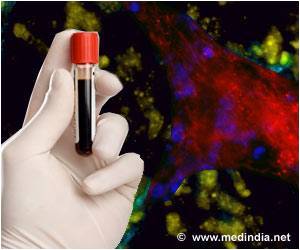Danish and German scientists said that they had identified dozens of chemicals, including some used in hygiene and consumer products, that interfere with male fertility by damaging sperm.

The chemicals included 4-methylbenzylidene camphor (4-MBC), which is an ultraviolet filter used in some sunscreens, and the anti-bacterial agent Triclosan, used in some kinds of toothpaste, they said.
Outside commentators praised the research but noted it was only carried out on sperm in a lab, a context far removed from the more complex environment of the human body.
Health watchdogs are keeping a close eye on the so-called "endocrine disruptor chemicals", hundreds of which are present in food products, textiles, hygiene products, toys, cosmetics and plastic bottles.
But there were previously no tests that could decisively demonstrate the suspected side-effects on sperm. The researchers said this problem has now been solved.
"Our study provides scientific evidence to assist forming international rules and practices," said Timo Struenker of the Centre of Advanced European Studies and Research in Bonn, the former West Germany capital, who led the study.
It suggested that exposure to the chemicals increases calcium levels in sperm, altering their swimming behaviour and hampering its ability to penetrate the egg's protective coat.
"For the first time, we have shown a direct link between exposure to endocrine-disrupting chemicals from industrial products and adverse effects on human sperm functions," said Niels Skakkebaek of Copenhagen University Hospital.
In a commentary carried by Britain's Science Media Centre, Colin Berry, a professor of pathology at Queen Mary University of London cautioned against extrapolating results for humans from only lab-dish tests.
Lab rodents should be the next step for experiments to validate the findings, he said.
Another expert, Allan Pacey of the University of Sheffield, said men were exposed to "relatively few chemicals or lifestyle factors" that affected their semen quality.
The strongest evidence to back the case against endocrine disruptors would come from a widespread study conducted among the population, he said.
EMBO Reports is published by the European Molecular Biology Organisation.
Source-AFP








